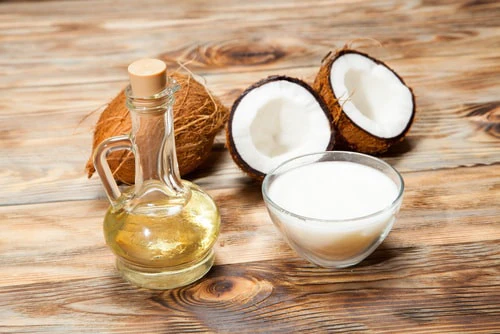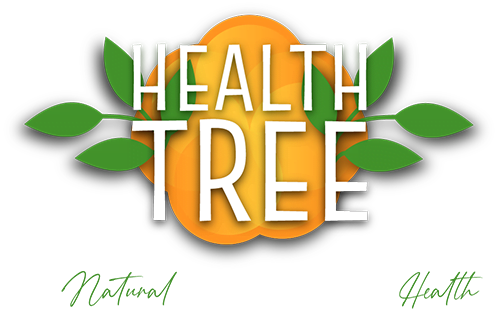You have probably heard a lot of great things about coconut oil over the last few years. It’s been called a superfood by many different health experts, and it has been shown to be effective in treating diabetes, improving skin health and fighting off infection.
It has become increasingly popular among food lovers and health enthusiasts, and that means it is being sold everywhere. It’s not just a health food store item anymore. You can find it at your local grocer. A lot of celebrities have endorsed its use for health and beauty too, including Miranda Kerr, Emma Stone and Gwyneth Paltrow.
What is it about coconut oil that makes it such a standout product? It used to be something most people hated, but now it’s something a lot of them can’t live without.
It contains more saturated fats than most foods. About 90% of the coconut is saturated fat. Until just a short while ago, we all used to think that foods high in saturated fats, like meat, cheese and butter, were not very good for you. Nutritionists and doctors suspected they contributed to diabetes, obesity and other health problems. Now we know that not all saturated fats are created equal, and we have been able to identify some healthy ones. The ones found in coconut oil are called medium-chain fatty acids, and these are essential to good health.
So, what are medium-chain fatty acids?
Saturated fats may have a bad reputation, but fatty acids are actually very important to a healthy diet. Not all saturated fats are great for us, but some of them are, and coconut oil is made up of about 92% saturated fat. This is primarily the less common medium-chain fatty acids. It’s quite different from long-chain fatty acids in that they have a different number of carbon atoms, and that’s why the medium-chain fatty acids are healthier.
The majority of medium-chain fatty acids, (which we will now refer to as MFCAs) are able to be absorbed easily into the body. These are essentially carbs rather than fat. Your body will use them to burn off energy, and they are simple for the body to digest. Coconut contains a lot of a MFCA known as lauric acid. This is a powerful antimicrobial.
The Benefits of Coconut Oil
Skin Benefits
Coconut oil is an excellent moisturiser. It doesn’t smell very strong and it isn’t visible. It can also be easily absorbed into the skins, and when you combine it with sugar, it can be used to exfoliate the skin.
Hair Benefits
It works better than most hair tonics for penetrating the hair follicle, and it produces a sleek shine and cuts down on hair breakage.
Digestive Benefits
You can use coconut oil to boost your digestive process, as it can speed up the absorption of calcium, magnesium and varies vitamins. It may even make omega-3 vitamins more effective by breaking up metabolic enzymes faster than normal.
Heart Benefits
Most health guidelines will say that you need a diet low in saturated fats, but some studies have shown that coconut oil can positively affect the heart and the cardiovascular system. That’s because it can boost the levels of HDL, or good cholesterol, in the body.
Dieting Benefits
Many studies have proven that coconut oil is great for weight loss too. This is due to the triglycerides that are packed into it, and they get metabolised by the body differently from other saturated fats, so they don’t end up stored away as more fat.
Blood Sugar Benefits
Coconut oil can also be used to regulate your blood sugar levels, and it may also help your body to become less sensitive to insulin.
Immunity Benefits
There are two ingredients contained in coconuts that are great for immunity. These are caprylic acid and lauric acid, and they are superb for fighting against bacterial and yeast infections. Coconuts are made up of about 50% lauric acid, and that turns into monolaurin in the body, which is a powerful antiviral agent.
Bone Benefits
You can enjoy stronger bones if you use coconut oil regularly. It can fight off osteoporosis by boosting the body’s absorption of magnesium and calcium.
Energy Benefits
The MFCAs are something that the body will absorb rapidly and easily, and they go straight to the intestinal tract. They aren’t something that the blood will absorb and turn into fat. Instead, the body uses them as energy.
Antibacterial Benefits
The MFCAs are also able to boost the body’s ability to fight bacteria and viruses. Lauric oil gets rid of all sorts of bacteria in the body, making it a much safer and healthier place.
How to Use Coconut Oil When You Cook
You can use coconut oil as a substitute when you cook. It has what is known as a high smoke point, so it is very good for cooking at high temperatures. This versatile oil is excellent for both frying and roasting, especially if you use unrefined coconut oil.
Coconut oil has a consistency and taste that is very similar to butter, but it has some unique qualities as well. If you use unrefined oil, you will enjoy a nutty taste that adds a special personality to food. It is ideal for healthy curry dishes, adding a particular scent and flavour to the dish. It also works well when baking, as it combines with baking ingredients like honey and vanilla.
Should You Used Refined or Unrefined Coconut Oil?
Coconut oil and its health benefits is still a subject of some debate, but more and more people are starting to recognise that it is nutritionally beneficial and that it is great for your skin. You do want to make sure you use the right kind of oil, and many people have tough time deciding between refined or unrefined coconut oil.
To get refined oil, the flesh of the coconut is dried and then put into a high heat deodorisation process. This gets rid of contaminants, but some are put back in by a few manufacturers who use sodium hydroxide to improve the oil’s shelf life. The hydrogenation process can also create trans-fat in the coconut oil, and that can combine with the chemicals to create something that isn’t quite as healthy as it is supposed to be.
That shouldn’t be taken to mean that all refined coconut oils are bad for you, though. Many producers are serious about creating healthy coconut oil products, and they use natural processes to get the oil out of the flesh. They will most often use steam, and that makes certain that there are no trans fats or chemicals left behind.
The unrefined oil is also known by the names virgin and extra virgin. It is produced by pressing the coconut meat, so no chemicals are required. If the unrefined oil is of good quality, it will have a mild taste that’s a bit nutty. It is usually considered the healthiest type of coconut oil, and people seek it out for its nutritional benefits.
Coconut oil and coconut in general have become more common in the average person’s diet. There was a common part of many people’s diets for generations before that, though, and the ancient knowledge that has been gathered about this food is something that science is still trying to catch up. Now it is being hailed as a superfood, and we’re sure it is here for good.
Oil pulling has become a common technique as well. This uses the oil as an oral cleanser and it gets rid of bacteria that lives in the mouth.
If you haven’t started using coconut oil yet, then you should try working it into your dieting. Use it in small quantities at first to make sure you are able to get used to it before you start using it more regularly.
After all, even coconut oil needs to be used in moderation.



